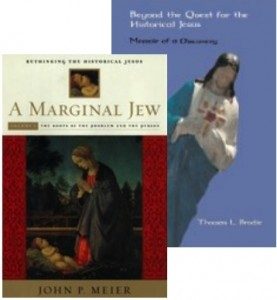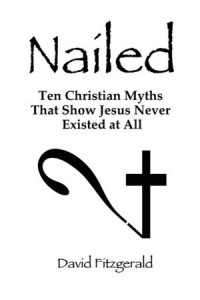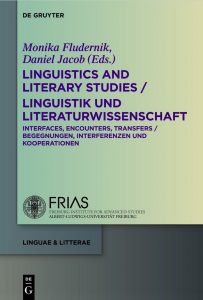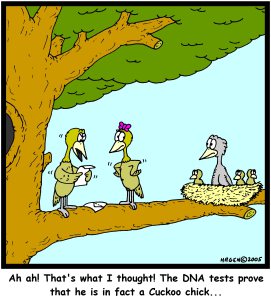Here is an annotated list of Vridar posts addressing the famous passage in Josephus’s Jewish Antiquities, commonly known as the Testimonium Flavianum (TF).
–o0o–
The Jesus reference in Josephus: its ad hoc doctoring and various manuscript lines
(2009-03-06)
From various sources I have set out chronologically the earliest evidence we have for knowledge of the TF and what different writers said about it. Beginning with the publication of Josephus’s work in Rome the post outlines what we know or don’t know of the TF from . . .
- ca.140’s CE — Justin Martyr
- ca.170’s CE — Theophilus, Patriarch of Antioch
- ca.180’s CE — Irenaeus
- ca.190’s CE — Clement of Alexandria
- ca.200’s CE — Tertullian
- ca.200’s CE — Minucius Felix
- ca.210’s CE — Hippolytus
- ca.220’s CE — Sextus Julius Africanus
- ca.230’s CE — Origen
- ca.240’s CE — Cyprian
- ca.270’s CE — Anatolius
- ca.290’s CE — Arnobius
- ca.300’s CE — Methodius
- ca.300’s CE — Lactantius
- ca.324 CE — Eusebius
- ca.370’s CE — Jerome
- ca.380’s CE — St John Chrysostom
- ca.370’s CE — Latin Pseudo-Hegesippus and the Hebrew Josippon
- ca.400’s CE — Augustine
- ca.870’s CE — Photios, Patriarch of Constantinople
- 10th Century — The Arab Christian historian Agapius
- 11th-12th centuries — Slavonic Josephus
–o0o–
The Testimonium Flavianum: more clues from Eusebius
(2009-03-08)
This post begins to discuss the detailed evidence that the TF was composed by Eusebius. I draw heavily on Ken Olson and Earl Doherty’s discussion of Olson’s arguments but I also like to think I add a few extra layers of insight. I further point to Mike Duncan’s case for another contender, Pamphilus.
Specific details covered:
- 1. wise man (sophos aner)
- 2. if it be lawful to call him a man
- 3. a doer of wonderful works (paradoxon ergon poietes)
–o0o–
Political context of the current Testimonium Flavianum “consensus”
(2009-03-10)
After reading James Crossley’s Jesus in an Age of Terror I began to wonder if their is a link between the emergence of the consensus view that the TF was partially authentic to Josephus and the simultaneous development of the broader societal trend to compensate for historic wrongs against the Jews, and to fully side with them post “miraculous” 1967. (I stress, though, that this question is entirely my own and not raised by Crossley. Other links between social and political developments on the one hand and perspectives in biblical studies led me to ask the question of the TF.)
–o0o–
Jesus in Josephus — Eusebian clues — point 4
(2009-03-14)
Continuation from The Testimonium Flavianum: more clues from Eusebius (above: 2009-03-08)
- 4. receive the truth with pleasure (hedone talethe dechomenon)
–o0o–
Jesus in Josephus — pts 5-12
(2009-03-15)
Continuation from above.
- 5. He won over to him both many of the Jews and many of the Gentiles
- 6. He was the Christ.
- 7. first men among us (proton andron par hemin)
- 8. Pilate condemned him to the cross
- 9. those who loved him at first did not cease/forsake him
- 10. for he appeared to them alive again the third day; as the divine prophets had foretold these and ten thousand other wonderful things concerning him
- 11. tribe of Christians
- 12. named after him
–o0o–
Jesus in Josephus – “not extinct at this day”
(2009-03-15)
Continuation from above.
- 13. has not failed to this day / up until now
–o0o–
Jesus in Josephus, a cuckoo in the nest. 1
This post and the next two look at how Josephus uses digressions and “footnotes” and whether the Testimonium Flavianum conforms to type. Also another look at the likelihood of Josephus having said anything mildly positive or neutral about Jesus.
This first of three posts:
Some of the words in the Testimonium (TF) are characteristically Josephan, but when we step back and
- look at the thematic sequence in Book 18 of Antiquities from the beginning,
- and compare the Jesus TF with Eusebius’s various wordings of it,
- and compare the images each of the two authors deployed to express their respective agendas,
then an interesting possibility of how Eusebius (or a closely related scribe) manipulated the wording and story flow found in Josephus to create the TF.
–o0o–
Cuckoo in the nest (2) — Jesus in Josephus
(2009-03-31)
The second of three posts examining how Josephus uses digressions and “footnotes” and whether the Testimonium Flavianum conforms to type.
–o0o–
Cuckoo in the nest, 3 — why ALL proposed TFs are unJosephan
(2009-05-02)
Continuation of the preceding two posts.
Here a special focus is on the likelihood of Josephus ever having said anything mildly positive about or even neutral in relation to Christians.
Concludes by a closer look at the TF in context.
–o0o–
cuckoo postscript — a more plausible Josephan “reconstruction”
(2009-05-03)
A coda to the previous three posts. I follow them up with a “more likely passage” that would be far more consistent with what we know of Josephus.
The reconstruction is, of course, meant to highlight just how strained are current arguments for a core Josephan TF.
–o0o–
 R.I.P. F.F.Bruce on the Testimonium Flavianum
R.I.P. F.F.Bruce on the Testimonium Flavianum
(2009-07-16)
New Testament scholars had strongly recommended to me that I read F.F. Bruce’s Jesus and Christian Origins Outside the New Testament if I was serious about wanting to come to grips with the Testimonium Flavianum, the passage about Jesus in Josephus. I was assured that this was essential reading, a sound and sobering antidote to “radical nonsense” touted by “nonacademic upstarts”, with Earl Doherty being the principal one in mind.
This post sets out a comparison between what I learned about the TF in Bruce’s book with what I learned from Earl Doherty’s discussion.
–o0o–
What they used to say about Josephus as evidence for Jesus
(2010-01-16)
Quotations from an earlier generation of New Testament scholars dismissing the idea that the TF had any historical value whatsoever because it was considered a total forgery.
–o0o–
 “An important piece of non-Christian evidence” for the historicity of Jesus
“An important piece of non-Christian evidence” for the historicity of Jesus
(2010-11-05)
This post offers reasons to challenge the “the usual scholarly view” most recently asserted by Maurice Casey in his new book, Jesus of Nazareth, that Josephus wrote a short passage about Jesus. I attempt to show that there is evidence that Josephus wrote nothing about Jesus and that the TF is a complete forgery.
I add an addendum on that “brother of Jesus called Christ, James by name” passage
–o0o–
How they used to debate the evidence of Josephus for the historical Jesus
(2011-05-27)
My god! Civility in a debate against mythicists! But that was way back in the middle of World War II. I guess they had their killer-instinct priorities right then.
–o0o–
Socrates, Jesus and the broken reed of Josephus
(2011-11-06)
An overview disucssion of historical methods and the difficulties of using the TF in support of the historicity of Jesus.
–o0o–
6. Earl Doherty’s Response to Bart Ehrman’s Case Against Mythicism: Jewish Sources
(2012-04-27)
As per the title this post is by Earl Doherty responding to Bart Erhman’s appeal (Did Jesus Exist?) to the TF in support of the historical existence of Jesus.
–o0o–
 Making of a Mythicist — ch 17 . . . The Evidence of Josephus
Making of a Mythicist — ch 17 . . . The Evidence of Josephus
(2013-11-19)
Part of a series on Thomas Brodie’s Beyond the Quest for the Historical Jesus: Memoir of a Discovery.
–o0o–
O’Neill-Fitzgerald “Christ Myth” Debate, #9: Josephus, 1 – Dave Fitzgerald on the Testimonium
(2014-01-30)
One would expect to find in Tim O’Neill’s review of DF’s book, Nailed!, … an honest acknowledgement of arguments in that book. Unfortunately anyone reading TO’s review would have no idea of DF’s overall argument on any point TO chooses to address. Since I began these posts taking the trouble to expose TO’s bluff, ignorance and pretentious nonsense, the good man himself has responded by saying my posts are “nitpicking” and symptoms of a man “obsessed with him”. I can only smile with contentment over a job done reasonably well if that’s the best his vanity can muster in his defence.
 Now it’s time to address TO’s criticism of DF’s discussion of the evidence of Josephus for the historicity of Jesus. This will take a few posts to complete. Let’s begin the way any honest reviewer of a work should always begin — that is, set out the arguments of the author one is reviewing.
Now it’s time to address TO’s criticism of DF’s discussion of the evidence of Josephus for the historicity of Jesus. This will take a few posts to complete. Let’s begin the way any honest reviewer of a work should always begin — that is, set out the arguments of the author one is reviewing.
–o0o–
O’Neill-Fitzgerald “Christ Myth” Debate, #10: Josephus as Evidence & the Arabic Version of the Testimonium
(2014-02-03)
Tim O’Neill (TO) rightly says of some of the evidence for the historical existence of Jesus:
Yet curiously not a single aspect of evidence addressed by either David Fitzgerald (DF) or himself in his reviews of DF’s work has hit on anything that he finds ambiguous or difficult to interpret. In every point of disagreement TO suggests DF is nothing but a liar or a fool.
–o0o–
Fresh Evidence: The Forged Jesus Passage in Josephus
(2015-01-16)
 Alerting readers to a chapter by Paul Hopper, Distinguished Professor of the Humanities Emeritus at Carnegie Mellon University, titled A Narrative Anomaly in Josephus: Jewish Antiquities xviii:63.
Alerting readers to a chapter by Paul Hopper, Distinguished Professor of the Humanities Emeritus at Carnegie Mellon University, titled A Narrative Anomaly in Josephus: Jewish Antiquities xviii:63.
Here is the abstract of the chapter:
Abstract: Josephus in the Jewish Antiquities introduces Jesus the Messiah into his history of the Jews, and appears to report events corresponding closely to those of the Gospels, including Jesus’s crucifixion on the orders of Pontius Pilate. A longstanding dispute exists about the authenticity of this text. The present article offers a narratological analysis of the passage, comparing the styles of event reporting in the passage with the three other episodes in Josephus’s Pontius Pilate sequence. The study concludes that the uses of the Greek verb forms such as aorists and participles are distinct in the Jesus passage from those in the other Pilate episodes, and that these differences amount to a difference in genre. It is suggested that the Jesus passage is close in style and content to the creeds that were composed two to three centuries after Josephus. (my bolding in all quotations)
–o0o–
Shirley Jackson Case: Inadvertent Omissions
(2015-03-08)
Shirley Jackson Case, known by many today as one who wrote at length against the Christ Myth theory in the early twentieth century, also discussed problems with the TF. This post presents his argument that even if some of the TF were Josephan (as a very few in his own day were suggesting) that still left the problem of context:
But none of these solutions quite disposes of one serious difficulty, namely the foreignness of the passages to its context. Its motive is neither to record a sample of Jewish “sedition,” nor is it a “calamity which put the Jews into disorder”—the topics treated in the context. It is rather a distinctly biased note aiming to glorify Christianity, a note such as a Christian might write on the margin or a scribe insert into the text. This is all the more probable since it is not so much to Jews—who looked upon Josephus with suspicion after his part in the war with Rome—as to Christians that we are indebted for the preservation of Josephus’ works. (Case, 1912, p. 253, emphasis mine)
–o0o–

A Narrative Anomaly in Josephus
(2018-08-31)
Revisiting Paul Hopper’s chapter (see Fresh Evidence above; 2015-01-16), with highlighting of one small part of his argument, i.e. the way time is handled, emplotment and genre.
–o0o–
Neil Godfrey
Latest posts by Neil Godfrey (see all)
- What Others have Written About Galatians (and Christian Origins) – Rudolf Steck - 2024-07-24 09:24:46 GMT+0000
- What Others have Written About Galatians – Alfred Loisy - 2024-07-17 22:13:19 GMT+0000
- What Others have Written About Galatians – Pierson and Naber - 2024-07-09 05:08:40 GMT+0000
